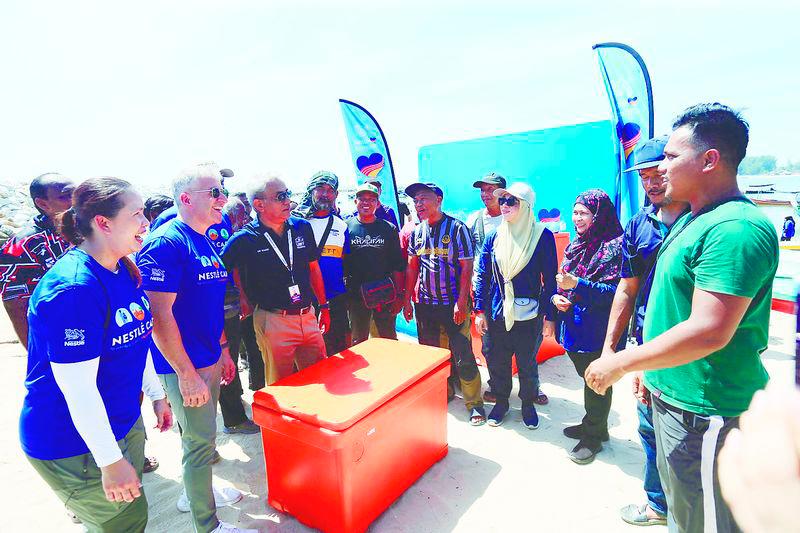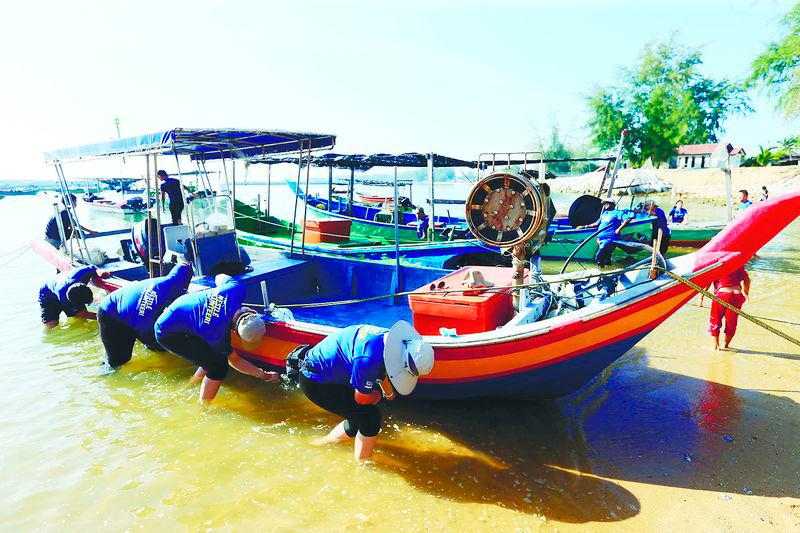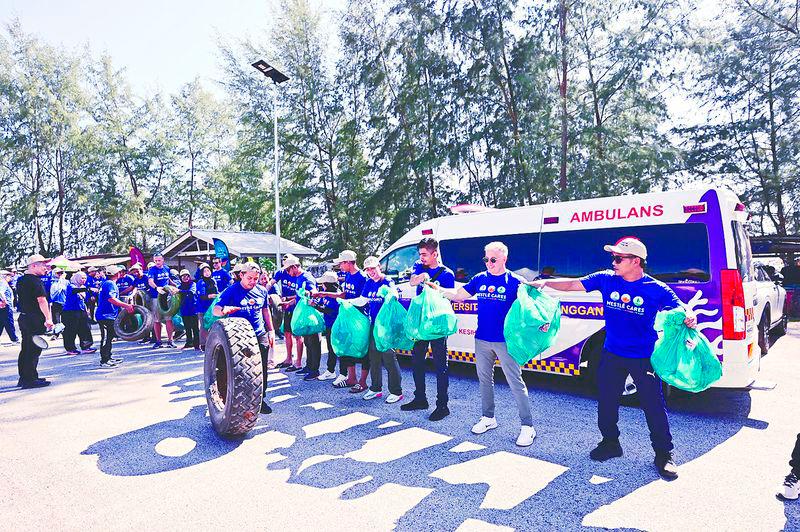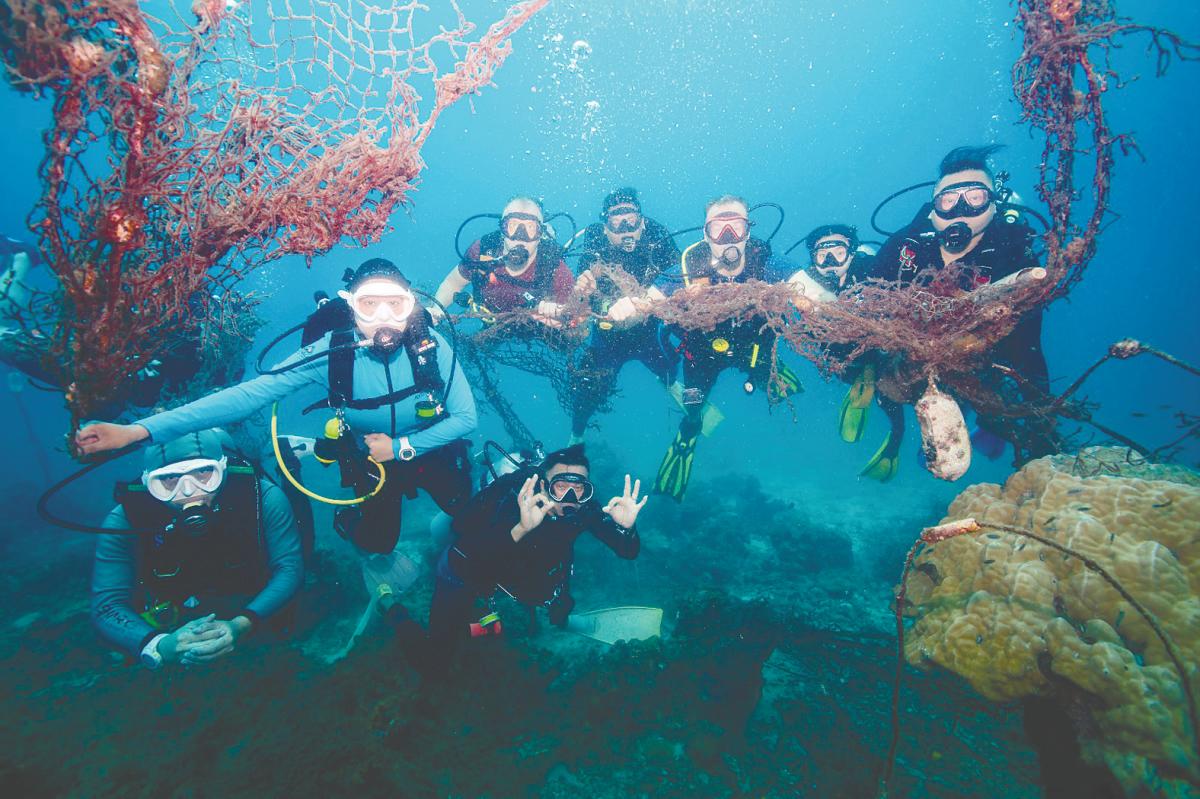MALAYSIA’s east coast is known for its coral reefs and rich fishing grounds that sustain biodiversity and the livelihoods of local fishing communities. However, in recent years growing plastic waste has posed increasing challenges to these fragile ecosystems, says Nestle Malaysia.
From discarded packaging to ghost nets abandoned at sea, marine debris is putting pressure on traditional fishing areas relied upon by generations of local families. Alarmingly, Malaysia is among the top 10 countries globally for microplastic ingestion.
A 2024 study published in the Environmental Science and Technology journal found that Malaysians consume an average of 502.3mg of microplastics daily, with more than half coming from seafood. For fishing communities, more than an environmental issue, this is a matter of long-term survival.
In response to this urgent challenge, the company brought its annual Coastal and Underwater Clean-Up to Terengganu recently with a renewed mission. For the first time, the initiative brought together not only employee volunteers from Nestle’s “Sayang Komuniti” programme, but also marine researchers from Universiti Malaysia Terengganu (UMT), representatives from the Fisheries Development Authority of Malaysia (LKIM) and villagers from the Pantai Tok Jembal fishing community.

The effort saw more than 350 volunteers carry out a range of activities at two locations. At Pantai Tok Jembal, teams worked side-by-side with villagers to clear plastic waste along the coast, remove barnacles from fishing boats, repair fishing huts and distribute basic provisions to the local community.
The programme continued at Pulau Bidong, which saw Nestle volunteers and UMT’s “Ocean Heroes” with the support of the Malaysian Maritime Enforcement Agency (MMEA) conduct an underwater clean-up targeting ghost nets, which pose a serious threat to coral reefs and marine life.
Nestle Malaysia CEO Juan Aranols said: “At Nestle, our ‘Creating Shared Value’ approach drives us to create lasting benefits for both people and the planet. Our ambition to achieve plastic neutrality compels us to work hand-in-hand with local stakeholders to remove plastic waste from the environment and embed sustainable practices across our value chain.
“This collaboration in Terengganu with our partners and the Pantai Tok Jembal community reflects our deep commitment to protecting natural ecosystems while supporting those whose livelihoods depend on them. With microplastics increasingly threatening our food systems, initiatives like this are not only vital for environmental health but also for strengthening Malaysia’s food security, food safety and the long-term resilience of our coastal communities.”

UMT’s Microplastic Research Interest Group researcher Assoc Prof Dr Yusof Shuaib Ibrahim said: “Removing ghost nets is crucial, as they break down into microplastics that harm coral reefs, marine life and ultimately human health through the food chain. Many clean-ups focus only on beaches but this collaboration with Nestle sets a new benchmark by tackling underwater pollution.
“Through waste audits, we gather vital data to trace pollution sources and better understand how even small acts of mismanaged plastic can lead to wider harm. This also connects academic research with real-world impact, showcasing how industry-academia partnerships can lead the way in long-term environmental stewardship.”
Pantai Tok Jembal fisherman Rahmat Zamri said plastic pollution and ghost nets have really affected the fishermen activities, where their catch has been decreasing. “The beach has changed too. It used to be very clean. We welcome the visitors and local businesses but the rubbish they left behind is a growing concern. The locals do their best to keep the area clean, but it is not easy.
“That’s why I’m truly grateful for the clean-up programme. It helps protect our environment and our livelihoods. When a company like Nestle works with us, I hope it inspires more positive change and reminds people to treat the ocean with more respect.”
Nestle Malaysia stated that as plastic pollution continues to threaten ocean health and human well-being, initiatives such as this showcase that bringing about real change requires collective responsibility. Whether removing ghost nets, clearing plastic waste or raising awareness, each action contributes to a cleaner, safer future.
Since its inception in 2019, this initiative has collectively removed nearly 17 tonnes of marine waste from Malaysian shores. This year alone, approximately two tonnes were removed, a clear reflection of what can be achieved when companies and communities work together.










